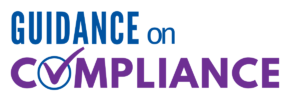If you provide and bill for PT, OT and SLP therapy services under Medicare Part B and have not received any requests from your Medicare Administrative Contractor (MAC), consider yourself lucky! During the Public Health Emergency (PHE), the Centers for Medicare and Medicaid (CMS) halted all audits. Since the end of the pandemic on May 11, 2023, CMS has charged the MACs with closer review of Medicare billing under Part B.
Concurrently, there has been focus on the CMS 5-Claim audit for Medicare Part A under the Patient Driven Payment Model (PDPM). Skilled Nursing Facility (SNF) operators are spinning with many review requests. The PDPM audits might be a higher priority to you if your Part A revenue is greater than Part B revenue. However, in the audits performed by LW Consulting, Inc. (LWCI), we have not seen a great impact on payment for PDPM this past year. Most facilities have figured out how to correctly code the MDS. Missed coding is seen primarily in the Non-Therapy Ancillary (NTA) or the SLP categories. Although any coding error is identified as an “error” by CMS, typically there is a low dollar value associated with these miscoding findings. Often the findings identify underpayments, not overpayments.
Contrast this to a Medicare Part B audit where the entire claim is denied, and the losses add up!
What are the most common document requests under Medicare Part B?
TPE = Targeted Probe and Educate requests are the most common recently. The CMS website provides detailed explanation: CMS TPE Audits. The MAC typically sends a request to look at 20-30 records. This Additional Document Request (ADR) means you have to send all the supporting documentation. One common focus area is the correct use of applying the “KX” modifier to CPT codes billed on the claim form. Typical findings include the comment that “the documentation does not support the skills of a therapist were necessary”.
Other probe audits look at proper documentation to support coding of particular CPT codes such as 97530, therapeutic activities.
UPIC = Unified Program Integrity Contractors are a much-feared audit request. UPICS are awarded CMS contracts to review claims and perform data analysis to identify and prevent fraud, waste and abuse in Medicare and Medicaid programs. The CMS UPIC Audits PIM taken from the Program Integrity Manual outlines specifics. A UPIC audit focuses on whether providers complied with CMS billing requirements when they billed and if they were medically necessary. They also look for patterns of fraud and abuse.
How do you manage ADR requests?
There are two critical steps in timely and appropriate management of ADRs. These are:
- Make sure you are checking for ADRs. The request to submit records might come in the mail, or it might be noted in your electronic system where you monitor claims submission.
- It is critical to have a system in place to secure and review documentation prior to sending the records to the MAC. The system should include tracking for the date the submission is due, review of records to ensure that all documents are signed and dated, are legible [or a signature log is included], and that all required information is part of the medical record, before the records are sent.
If you have questions about submitting records for an ADR, want to have an expert external review of your records, need assistance with appeals for either Redeterminations, Reconsiderations, or the ALJ, LWCI consultants are here to assist. Please call Kay Hashagen, PT, MBA, RAC-CT, Senior Consultant at (410) 777-5999 or email: khashagen@lw-consult.com.

